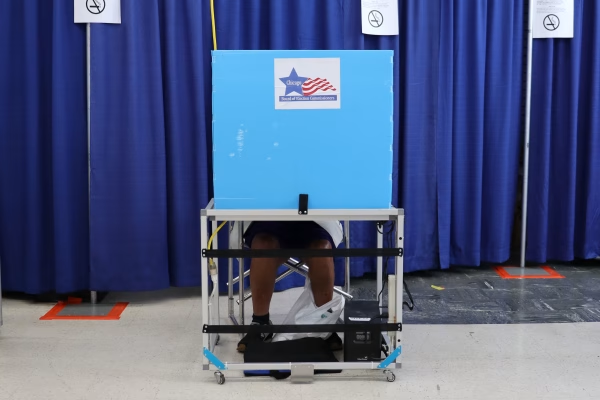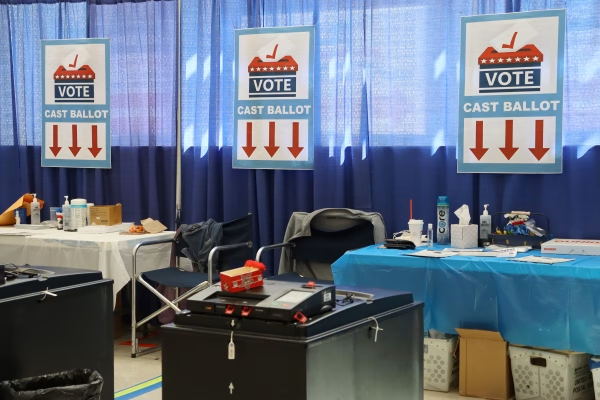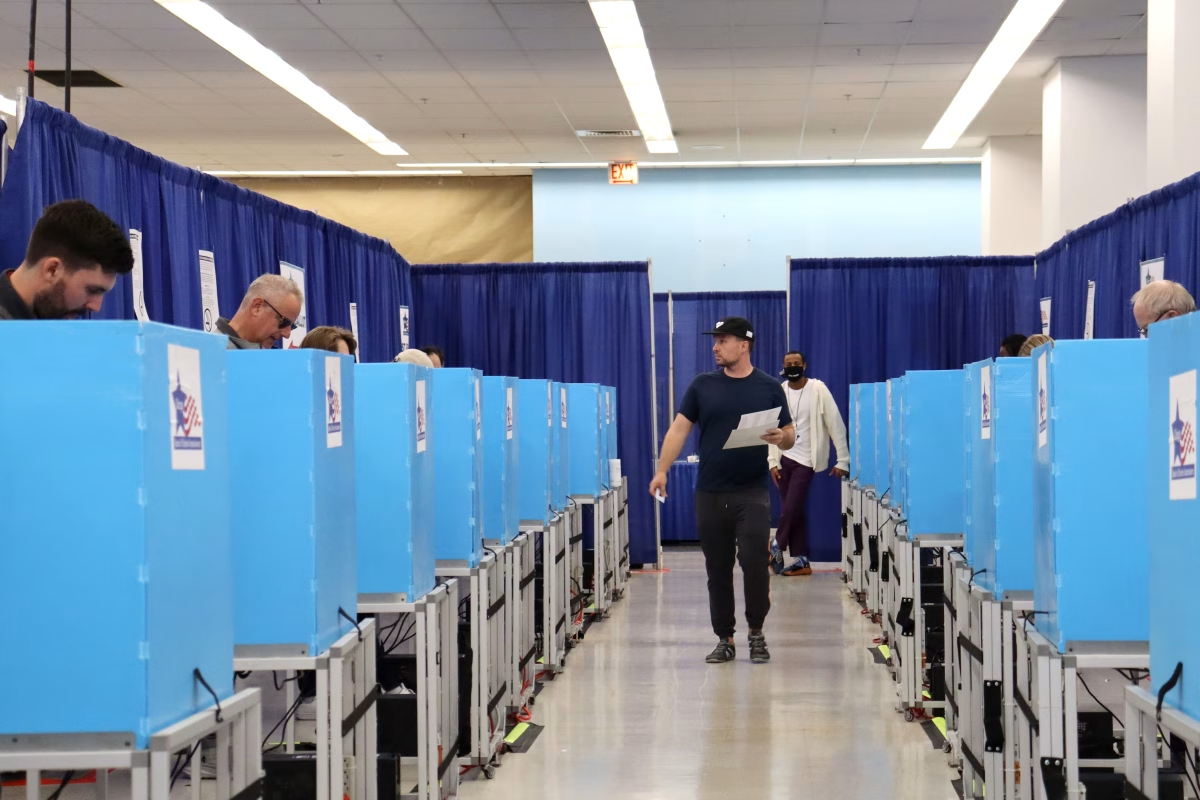Voters across Chicago will line up to fill out their ballots on Nov. 5, 2024 in the presidential election. For many, voting is a chance to participate in local and national politics and elect representatives that share their values. Voters must choose how they want to vote and how to combat misinformation during elections.
“I think voting is very important, especially in this upcoming election where huge topics are being discussed,” Zoey Guziec, a senior at DePaul said. “I would like somebody that has similar values and morals to me in office. And the only way to do that is to vote.”
In the United States, 39 states offer early voting options, including Illinois, which opened early voting 40 days before the election and will remain open until the day before Election Day. In Chicago, two downtown locations began early voting on Thursday, Oct. 4 at the voting Supersite and the Election Board Offices, where any Chicagoan eligible to vote can cast their ballot. In addition, 50 other early voting sites opened around the city on Oct. 21.
Twenty-eight million Americans have already cast their ballots through mail-in voting or early voting, according to data from the University of Florida’s Election Lab.

Benjamin Epstein, a political science professor at DePaul, said Americans’ interest in politics has become more national.
“Once upon a time, people said all politics is local, and now people are starting to think, ‘well now … it feels like all politics is national,’” Epstein said. “So, there’s been a lot more attention on national politics all the time, and that’s driven a pretty good turnout.”
Dionysi Siopsis, a senior at DePaul, said he will be voting in person on Election Day. He is originally from Tennessee, but decided to change his voting registration to Illinois.
“I think one of the more important things is (to) vote local and actually care about local elections,” Siopsis said. “A lot of people don’t care about it, and they don’t read up on it, but that’s it’s actually gonna immediately affect you more.”
Teri Ross, the executive director of Illinois Legal Aid Online, a company that helps Illinois residents access the civil justice system, including voting rights, through free tools, said the voting process in Illinois is very accessible.
“To be able to actively participate in our government through voting is a really powerful thing, and it’s something that many, many countries don’t offer,” Ross said. “I think sometimes we take that for granted.”
Illinois residents can do same-day voter registration, automatically register at the DMV, register online and vote early. Illinois also allows felons who have completed their sentence to vote in elections. Chicago offers universal polling sites for early voters where any voter in Chicago can cast their ballot regardless of where they live.
When Siopsis changed his voting registration to Chicago, he said he simply mailed in his registration and was able to vote in the next election.
Guziec, the DePaul senior, is an Illinois voter registered in the Chicago suburbs, but also had a very easy voting experience.
“There’s only one polling place really in Lake Zurich to go to,” Guziec said. “It was kind of like a city hall kind of building … It was real quick, easy in and out.”
Guziec has also noticed an increase of disinformation about Vice President Harris and former President Trump.
Epstein said misinformation and disinformation is becoming increasingly easier to disseminate online and that incorrect information about voting and voter registration is being spread.
With the rise of misinformation about voting on social media, it is important to be aware of the implications of information that is spread online, Epstein said. While misinformation is false information that is spread, disinformation is deliberately misleading information to “influence public opinion,” according to Merriam-Webster.
“(Disinformation) can and sometimes it is designed to actually repress voting, making it harder to vote, and that is just fundamentally problematic,” Epstein said. “The other piece is that it can lead people to trust voting and trust the democratic process less.”

Ross, from Illinois Legal Aid Online, said she hopes misinformation about voting rights will not negatively affect voter turnout. She said one of the best ways to combat misinformation and disinformation is to verify whether the source of information is reliable or not.
“Sometimes all we do is read a headline or a tagline, and of course, if you actually clicked on it and read the whole story, it is sometimes a very different thing than the headline says,” Ross said. “I think it’s important just to take the additional 20 seconds to make sure that the information that you’re getting before you forward it … is reliable.”
Epstein said voters should turn to trustworthy resources to learn about voting rights and access. Websites such as TurboVote allow voters to check their registration status and get updates about voting laws.
“Just having one trusted source to go back to makes all the difference,” Epstein said. “Any time a red flag goes off, ‘oh, I’m not sure if this feels totally right or I don’t really believe that was true,’ you can have a place to go back and check.”
Related Stories:
- At VP debate, Vance attempts softer stance on abortion; Walz pushes him on election denial
- ‘They’re eating the cats’: First and last debate sparks meme-worthy moments and important decisions for undecided voters
- DNC night one: Democrats celebrate ‘everyday Americans,’ Biden passes torch
delivered to your inbox every Monday.
Support Student Journalism!
The DePaulia is DePaul University’s award-winning, editorially independent student newspaper. Since 1923, student journalists have produced high-quality, on-the-ground reporting that informs our campus and city.
We rely on reader support to keep doing what we do. Donations are tax deductible through DePaul's giving page.


